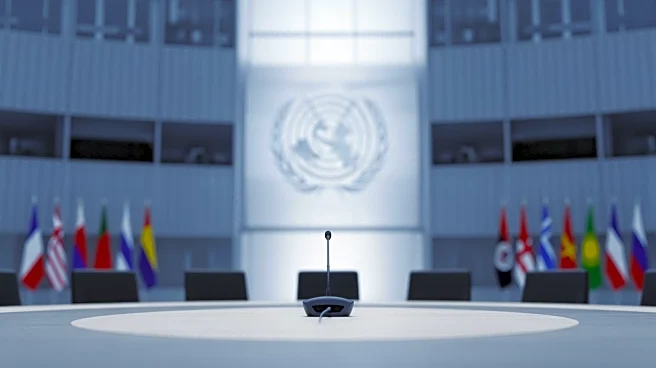What's Happening?
Israel, through the United States, is pressuring Lebanon to increase its efforts in locating and dismantling Hezbollah's weapons infrastructure. This comes amid ongoing Israeli strikes targeting Hezbollah sites, as part of a broader strategy to ensure
compliance with the Israel-Hezbollah cease-fire agreement. The Lebanese army has expressed confidence in declaring the southern region free of Hezbollah arms by the end of 2025. This initiative is part of a larger geopolitical effort to stabilize the region and reduce the influence of Hezbollah, which is considered a significant threat by Israel.
Why It's Important?
The intensified search for Hezbollah weapons in Lebanon is crucial for regional stability and security. Hezbollah's military capabilities pose a direct threat to Israel, and their reduction could lead to a decrease in hostilities and potential conflict. For Lebanon, successfully addressing this issue could improve its international standing and relations with neighboring countries. Additionally, it could lead to increased support and aid from Western nations, particularly the US, which is invested in reducing Hezbollah's influence in the region.
What's Next?
Lebanon's efforts to dismantle Hezbollah's weapons infrastructure will likely continue under international scrutiny. Success in this endeavor could lead to further diplomatic engagements and potential economic aid from the US and other allies. However, failure to effectively address the issue could result in increased tensions and potential military actions from Israel. The situation remains delicate, with potential implications for broader Middle Eastern geopolitics.
Beyond the Headlines
The push to dismantle Hezbollah's weapons highlights the complex interplay of regional politics, where military capabilities are closely tied to national and international power dynamics. The situation underscores the challenges faced by Lebanon in balancing internal security concerns with external pressures. It also reflects the broader geopolitical strategies of major powers like the US and Israel in shaping the Middle East's security landscape.
















